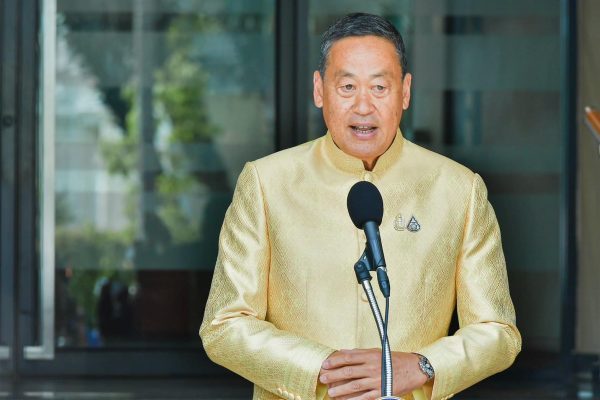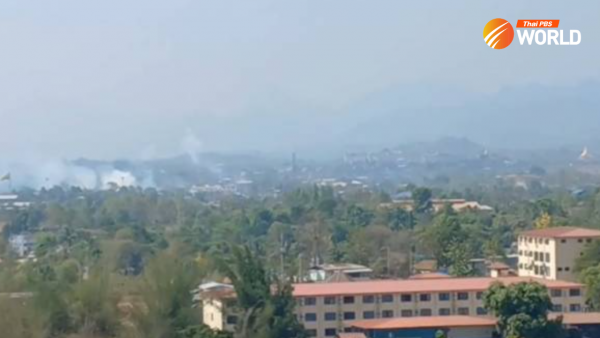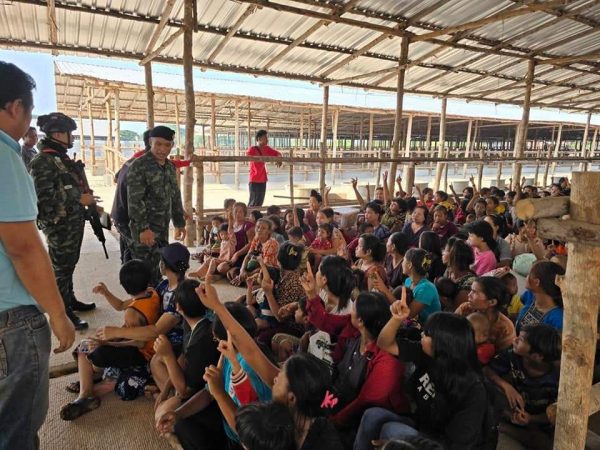Govt legitimacy eroding fast as crackdown on protesters makes global headlines

Thailand’s renewed political tension is increasingly worrisome, as the government continues ignoring demands of anti-establishment protesters who are becoming bolder under the spotlight of global attention.
The youth-led protesters have been rallying for the past three months, demanding that Prime Minister Prayut Chan-o-cha and his government step down, the junta-endorsed Constitution be rewritten and the monarchy reformed.
Prayut has rejected all calls to quit, Parliament has delayed charter-change motions, and there has been zero response to demands for reform of the monarchy.
The protests are now attracting global attention, while Prayut and his government is gradually losing legitimacy. The PM is facing increasing pressure to step down, heightened by Friday’s crackdown on unarmed protesters, most of them students.
Titipol Phakdeewanich, dean of the Faculty of Political Science at Ubon Ratchathani University, believes the cat-and-mouse game between authorities and protesters will drag on for the next two or three months, with both sides maintaining pressure on the other.
Since the student protesters have shown no tendency for violence, the government may have to give them space to hold rallies to avoid clashes, he said.
“The government will not exercise 100-per-cent suppression, as it risks losing legitimacy if there is even one death. A softer stance also means it can stay in power for a while,” Titipol said.
Prayut placed Bangkok under a “grave” state of emergency as of 4am on Thursday, banning gatherings of five or more people, any actions that may incite unrest, and allowing detention of suspects without charge for up to 30 days.
The premier issued the order to disperse thousands of protesters who had camped outside Government House on Wednesday.
As of Sunday, protesters had staged rallies for five successive days in different locations in Bangkok – from Government House to Rajprasong and Pathumwan to Lat Phrao intersection and Victory Monument – in clear defiance of the emergency decree.
Things came to a peak on Friday when riot police used water cannons on peaceful protesters at Pathumwan intersection in the heart of the city.
Strength in numbers
This move to suppress protesters instead added momentum to their movement and brought more people out on the streets.
The pro-democracy demonstrators managed to muster “organic” and “leaderless” protests at several sites across Bangkok over the weekend. Simultaneous rallies were held in other provinces.
“Though our leaders have been arrested, the true leader is the people, not an individual. From now on, there is no Khana Ratsadon [People’s Party], just Ratsadon [the people]. Every single person is a leader,” said the movement’s statement posted on Facebook and Twitter.
This announcement was posted by the Free Youth Movement and the United Front of Thammasat and Demonstration, who have been leading protests against the Prayut-led administration since July.
On Saturday, one day after the crackdown, large crowds began assembling simultaneously at several meeting points in the capital, namely Lat Phrao intersection, Udom Suk BTS station and the Wong Wian Yai roundabout.
On Sunday, most protesters headed for Victory Monument, while others joined a slightly smaller gathering at Asoke intersection.
Many participants at the weekend rallies said they joined the protest because the government’s severe backlash was intolerable.
With most of the movement’s core leaders arrested, rallies began being organised through social media. Locations, timings, instructions, advice and warnings were communicated through online channels. On Saturday, no stages were installed at the rally sites but protesters took turns in talking to the crowd using megaphones.
The protests ended peacefully with no violent incidents, while police kept their distance, in contrast to their aggressive dispersal operation on Friday.
Yuthaporn Issarachai, a political scientist from Sukhothai Thammathirat Open University, sees a possibility that the protest movement will now rise and expand.
The movement needs a prolonged period of protest, even a striking camp for days, to effectively put pressure on the government, he said.
Titipol added that the size of turnout is also crucial, adding that though protest hashtags shared on social media have exceeded one million, the numbers on the streets are still far lower.
He said the protest would need to last at least two to three months with more than 500,000 participants to have a real effect on the government. However, he does not see the crowds reaching this size any time soon.
“The movement’s momentum will stay strong because it is growing like wildfire on social media, as it is difficult for the authorities to suppress [the discussion] anonymous accounts. Nobody is afraid of expressing their opinions online,” the academic said.
Since October 13, at least 80 people have been arrested over protest-related charges, according to the Thai Lawyers for Human Rights. Observers, however, believe this arrest strategy will not work because either new protest leaders will keep emerging or the protest movement will become a “leaderless” endeavour.
The message reading “10 are arrested, 100,000 will be born” with “save” hashtags become top-trending on Twitter as soon as any of the high-profile leaders are arrested.
‘Prayut must sacrifice himself’
Fear and intimidation are useful tools for governments to control dissent, but Friday’s crackdown and the “severe” emergency decree have drawn concern and condemnation from both local and international human rights organisations, academics, doctors and civic groups. And with his decision apparently backfiring, Prayut appears to be facing more pressure.
In a bid to end the political impasse, one group has started collecting signatures demanding that Prayut resign and the Parliament vote in a new prime minister.
“Prayut must sacrifice himself, so the country can move forward. He is at the centre of a conflict that could turn unpleasant,” the group’s statement said.
So far, 157 people, mostly academics, former judges, activists, politicians and businessmen, have signed the petition. Among them are former election commissioner Somchai Srisutthiyakorn, academic Wittayakorn Chiangkul and economist Anusorn Tamajai.
Chaturon Chaisang, former chief strategist of the now-dissolved Thai Raksa Chart Party, said Prayut made a serious mistake by ordering a clampdown on the protesters.
“You may have reclaimed the Pathumwan intersection, but this [operation] will give rise to more rallies with more participants and become something you cannot stop or suppress,” Chaturon warned.
“Using force against young, unarmed protesters is inhumane and he [Prayut] is no longer a legitimate leader,” he added.
The business sector is also worried that the use of force may hurt the already ailing economy.
Sanan Angubolkul, vice-chairman of the Thai Chamber of Commerce, said both local and foreign investors were concerned at the crackdown and are uncertain whether the rallies will be prolonged and result in more violence.
“This uncertainty will affect or delay their decisions regarding future business and investment plans,” Sanan said.
He said immediate moves must be made to ease tensions, and both sides must come together to talk, adding that the government should not use force against the protesters.
Yuthaporn, meanwhile, suggested that Parliament hold an extraordinary session to approve the first reading of charter amendment bills, which are currently being studied by a special committee.
Last month, lawmakers, mostly coalition MPs and senators, overwhelmingly voted to set up a panel to study six charter amendment proposals proposed by the government and opposition parties –a move that was widely seen as a delaying tactic.
By Thai PBS World’s Political desk






